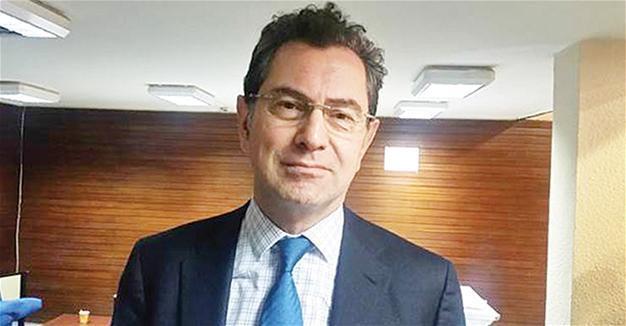Imprisoned Turkish journalist Kadri Gürsel refutes allegations in letter from jail
ANKARA

Veteran journalist Kadri Gürsel, a columnist at daily Cumhuriyet who has been in jail since Nov. 5, 2016, has refuted allegations against him in a letter from jail, saying that most of the phone records presented as “evidence” that he aided a terrorist organization are SMS messages and it would be “absurd to infer criminal acts from those records.”
“It is not possible to claim that there is a communication record with those individuals. It is contrary to reason and logic. It is only possible to mention an effort to establish contact with me,” Gürsel wrote from prison on June 8.
He is waiting to be tried on charges of “aiding and abetting a terrorist organization,” with the prosecution basing the case on 92 communication activities with suspects between Jan. 7, 2013 and Aug. 20, 2016.
Gürsel wrote that 84 of them were SMS messages to which he did not even respond, adding that only three were records of phone conversations with known supporters of U.S.-based Islamic preacher Fethullah Gülen from the Journalists and Writers Association and private broadcaster STV.
“I knew that those three people were Fethullahists, as all Turkey knew. I could not know that this cryptographic communication program [ByLock], which is presented as proof of my membership of an armed terrorist organization, was installed in their phones,” he said.
“In a country like Turkey, where the struggle between the ruling party, the opposition and scattered old alliances are the main source for a columnist who takes journalism seriously, it is absurd to try to infer criminality from such communication records,” Gürsel added.
Gürsel said that in 2014, when the first breakdown of the Fethullahist Terrorist Organization (FETÖ) structure within the security forces took place, Gülenists organized a media campaign against the breakdown and he was “bombarded with messages during that period.”
Indicating that 79 of those SMSs were sent between July 27 and Aug. 1, 2014, Gürsel said he was also called on July 26, 2014 by two people who introduced themselves as “relatives of a police officer who was victimized by the breakdown.”
“I believe that I was bombarded with messages a day after those calls because I did not respond to any of those calls. Those two individuals appear to be users of ByLock,” he said, referring to the messaging app used almost exclusively by Gülenists and seen by prosecutors as evidence of FETÖ membership.
Gürsel also noted that according to an Istanbul Security Directorate report, those who sent him messages were identified as police officers, teachers and academics and were from more than 20 cities including Istanbul, Ankara and İzmir.
“I think that the reason for their calls to me was that I am an independent and critical journalist. But it is obvious that their efforts to seek support from me was futile,” he said.
 Veteran journalist Kadri Gürsel, a columnist at daily Cumhuriyet who has been in jail since Nov. 5, 2016, has refuted allegations against him in a letter from jail, saying that most of the phone records presented as “evidence” that he aided a terrorist organization are SMS messages and it would be “absurd to infer criminal acts from those records.”
Veteran journalist Kadri Gürsel, a columnist at daily Cumhuriyet who has been in jail since Nov. 5, 2016, has refuted allegations against him in a letter from jail, saying that most of the phone records presented as “evidence” that he aided a terrorist organization are SMS messages and it would be “absurd to infer criminal acts from those records.”